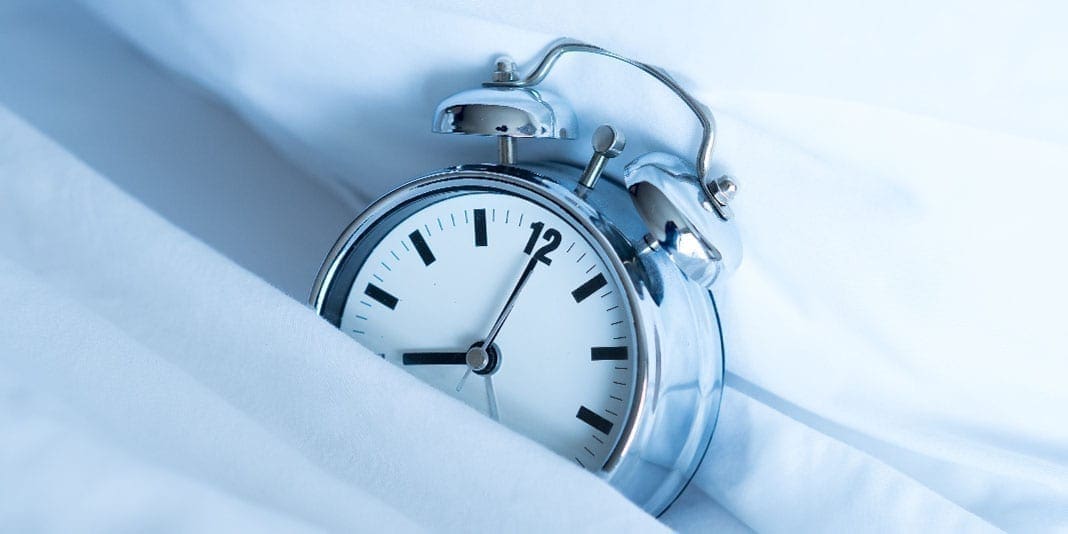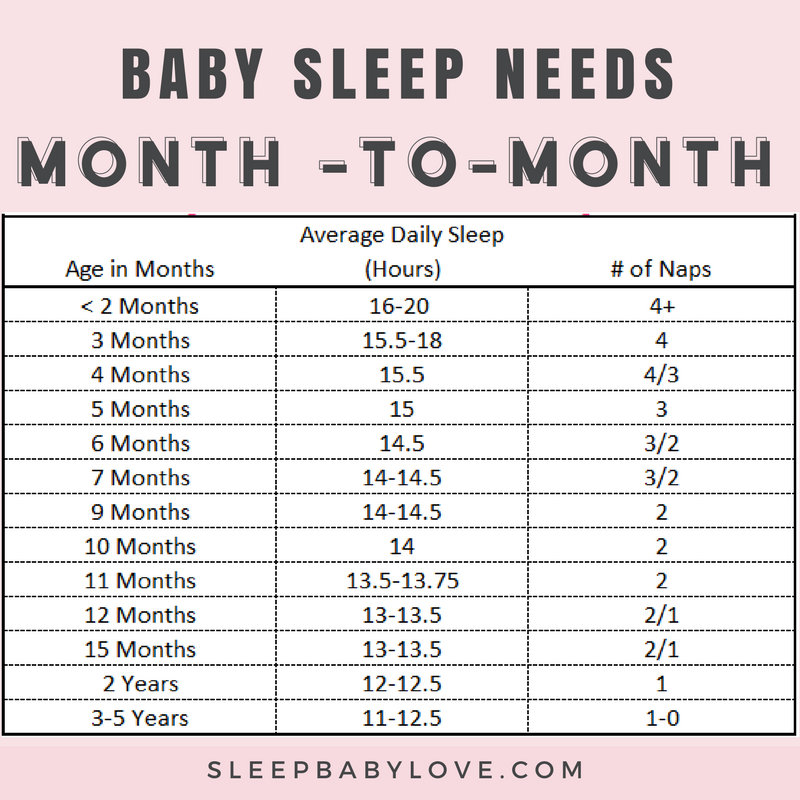By around 6 weeks your baby will hopefully have started consolidating their sleep into more noticeable awake and nap periods in the day and might well have begun sleeping in longer stretches overnight. Their night-time sleep cycles are 4-6 hours long and this is why, at about this age, your baby might start doing these longer stints at night, waking only once or twice for a feed. You'll start to feel like a new person again after coming through the tricky and exhausting newborn phase! We often see parents whose babies have been sleeping like champs, sometimes through the whole night, by around 12 weeks. Stage three of the sleep cycle stages, slow-wave sleep , is a crucial part of your cognitive functioning.
It plays a major role in memory consolidation and brain restoration. Because of its importance for your overall health, you must increase your amount of deep sleep by allowing yourself to have enough total sleep time each night. Additionally, exercise and a healthy diet are a couple of different methods you can try to help increase your slow-wave sleep. So, are you sending your child off to bed early enough? If those numbers are surprising to you, you're not alone. Working and single parents, especially, are often forced to get by on 5, 6, or even fewer hours of sleep each night.
This is likely impacting your own social and mental functioning, as well as increasing your risk for other health problems. It might be tempting to think that your children can also get by with less sleep than they need, or that they should be able to cope fairly well with a few skipped hours here and there. However, all children thrive on a regular bedtime routine. Regular sleep deprivation often leads to some pretty difficult behaviors and health problems—irritability, difficulty concentrating, hypertension, obesity, headaches, and depression. Children who get enough sleep have a healthier immune system, and better school performance, behavior, memory, and mental health.
The key is to implement healthier sleep habits, also known as sleep hygiene. While sleep requirements vary slightly from person to person, most healthy adults need seven to nine hours of sleep per night to function at their best. And despite the notion that our sleep needs decrease with age, most older people still need at least seven hours of sleep. Since older adults often have trouble sleeping this long at night, daytime naps can help fill in the gap.
Proponents say that spacing out slumber can maximize the amount of time you spend in rapid eye movement sleep and slow wave sleep, since the body defaults to these stages when it's tired. Dreaming, memory storage and mood regulation happen during REM sleep, while slow wave is the deepest, most restorative stage of sleep. Many polyphasic sleepers believe the other phases of the sleep cycle are unnecessary, and that by eliminating them, they can spend more productive hours awake. Studies have shown that slow-wave sleep is facilitated when brain temperature exceeds a certain threshold. It's believed that circadian rhythm and homeostatic processes regulate this threshold.
An unusually low, short-term carbohydrate diet in healthy sleepers promotes an increase in the percentage of slow-wave sleep. This includes a production in the percentage of dreaming sleep , when compared to the control with a mixed diet. It's believed that these sleep changes could very well be linked to the metabolism of the fat content of the low carbohydrate diet. In addition, the ingestion of antidepressants and certain SSRI's can increase the duration of slow-wave sleep periods; however, the effects of THC on slow-wave sleep remain controversial.
Total sleep time in these instances is often unaffected due to a person's alarm clock, circadian rhythms, or early morning obligations. This means that the fatigue and sleep one lost as a result, for example, staying awake all night, would be carried over to the following day. Not getting enough sleep a couple days cumulatively builds up a deficiency and that's when all the symptoms of sleep deprivation come in. A well rested and healthy individual will generally spend less time in the REM stage of sleep. Studies have shown an inverse relationship between time spent in the REM stage of sleep and subsequent wakefulness during waking hours. A parent loses about 350 hours of sleep at night over her baby's first year.
If you've gone awhile without getting good-quality rest, the sleep you do get -- even during a nap -- will become more effective. You'll fall asleep more quickly and sleep more soundly, so you'll actually get more sleep and refreshment for the shorter amount of time spent in bed. Newborns tend to sleep in fits and starts for 16 to 20 hours over a 24-hour period, so it's virtually impossible for a parent to get more than a couple hours of rest at a time. According to Dr. William C. Dement, a physician and sleep specialist, parents of newborns often lose about two hours of sleep per night until the baby is 5 months old.
From then until their child hits 2 years old, parents usually lose an hour of sleep each night. Poor sleep quality is linked to high blood sugar levels in diabetic and prediabetic patients but the causal relationship is not clearly understood. Researchers suspect that sleep deprivation affects insulin, cortisol, and oxidative stress, which subsequently influence blood sugar levels. Sleep deprivation can increase the level of ghrelin and decrease the level of leptin.
People who get insufficient amount of sleep are more likely to crave food in order to compensate for the lack of energy. This habit can raise blood sugar and put them at risk of obesity and diabetes. Each stage of sleep in your sleep cycle offers different benefits. However, deep sleep and mind and mood-boosting REM sleep are particularly important. You can ensure you get more deep sleep by avoiding alcohol, nicotine, and being woken during the night by noise or light.
While improving your overall sleep will increase REM sleep, you can also try sleeping an extra 30 minutes to an hour in the morning, when REM sleep stages are longer. I went from 0 to 15 mins of deep sleep for about 1 year to over 1 hour for the last three weeks by not eating before bed (2 hrs.) and no carbs past 1 o'clock pm. I'm a little pissed I've read this in only one book and found nothing about laying off carbs at night on any site. I also started eating in a pm window and fall asleep at 10 of all these changes think it was mostly laying off the carbs after my noon meal that increased my deep sleep.
When I sleep with my girlfriend, I get the most amazing, restorative, inconceivably best sleep of my life. Despite the only time its ever happened is in the worst conditions for ideal sleep. A hotel bed, with tropical summer heat, in a different time zone to throw off circadian rhythm, with no exercise that day, and a low carb diet. And despite 6-7 hours of sleep, it is the most well rested I've felt in my life, led me to naturally wake up without an alarm, didn't need to use melatonin to help myself fall asleep. Most people are monophasic sleepers, meaning they get all of their rest in one long chunk, typically at night. Polyphasic sleepers, meanwhile, snooze in short bursts throughout the day instead of sleeping all night.
The length of the core sleep and the number of naps varies, but people on this schedule spend a total of three to seven hours asleep. Another schedule consists only of 20-minute naps spaced throughout the day, totaling two to three hours of shut-eye per day. Over 70% experienced being woken up by external causes, such as hospital staff (35.8%).
Sleep disturbing factors included noise of other patients, medical devices, pain, and toilet visits. Multiple interventions could be considered to aid patient characteristics, improve hospital routines, or the hospital environment. Although some people do well on 6 hours of sleep, many of them do not feel any better compared to those getting up to 8 hours of rest. Typically, the body cycles between non-REM and REM sleep over a period of 90 minutes on average, and should occur 4-6 times in a good night's sleep.
Non-REM sleep begins, eventually moving into slow-wave sleep, or deep sleep. During slow-wave sleep, growth hormone is also secreted, which is particularly important for human development. Put this all together, and you can see why parents feel their babies are such light sleepers.
Like adults, newborns are more likely to awaken during REM, and during transitions between sleep stages. But unlike adults, newborns spend a lot more time in REM, and they transition between cycles more frequently. It can improve your sleep and help you fall asleep more quickly. But don't do it too close to bedtime because it stimulates your body to make something called cortisol. That's good when you're trying to wake up for work. But it's not so good when you're trying to get back to sleep.
If you must exercise in the afternoon or evening, try to finish at least 3 hours before you go to bed. No one person's sleep requirements are exactly the same. Some require 8 solid hours of sleep for optimal function.
Someone else, however, may lead a productive and healthy life on 5 hours of sleep per night with a short nap or naps during the day. The solution to this is to encourage "self-settling" so that your baby can happily drift off back to sleep on their own. If your typical evening includes a twilight workout...Regular exercise is linked to a myriad of mental and general health benefits — and has been linked to improved sleep quality, too . But too much activity too close to bedtime may stimulate the body and increase body temperature, making it tougher to fall asleep, Zee says. There are several strategies that help increase alertness and counteract the effects of sleep deprivation. Caffeine is often used over short periods to boost wakefulness when acute sleep deprivation is experienced; however, caffeine is less effective if taken routinely.
Other strategies recommended by the American Academy of Sleep Medicine include prophylactic sleep before deprivation, naps, other stimulants, and combinations thereof. However, the only sure and safe way to combat sleep deprivation is to increase nightly sleep time. Sleep deprivation can negatively impact overall performance, and has led to major fatal accidents. Air traffic controllers were under scrutiny when in 2010 there were 10 incidents of controllers falling asleep while on shift. The common practice of turn-around shifts caused sleep deprivation and was a contributing factor to all air traffic control incidents. The FAA reviewed its practices of shift changes and the findings saw that controllers were not well rested.
A 2004 study also found medical residents with less than four hours of sleep a night made more than twice as many errors as the 11% of surveyed residents who slept for more than seven hours a night. Acute sleep deprivation is when an individual sleeps less than usual or does not sleep at all for a short period of time – usually lasting one to two days. Chronic sleep deprivation means when an individual routinely sleeps less than an optimal amount for ideal functioning. Chronic sleep deficiency is often confused with the term insomnia.
Although both chronic sleep deficiency and insomnia share decreased quantity and/or quality of sleep as well as impaired function, their difference lies on the ability to fall asleep. Sleep deprived individuals are able to fall asleep rapidly when allowed but those suffering from insomnia have difficulty falling asleep. This may explain why newborns don't oblige exhausted parents by lapsing into long periods of deep sleep. Instead, the typical minute newborn sleep cycle includes only about 20 minutes of quiet sleep. I've got a sleep tracker and I am low in deep sleep, am on a diet so its not that as its low sugar, low fat..
I exercise loads Inc cycling and walk an avg steps a day.. I will either crochet or watch TV before bed so I'm never on the net.. Not crocheting, laying in bed with lights off hours before bed.. Going late, going early, and I cannot get it right.. To see if that helps and a bedtime app for my little one.
I have been researching deep sleep because lately I have been exhausted, red-eyed, and foggy despite the amount of time I spend asleep. About three weeks ago I invested in a Galaxy smartwatch and while averaging 7-7.5 hours of time sleeping I consistently get 0-7% deep sleep. This is curious because I am only 38 and I thought it only decreased significantly for 60+ folks. I have no issues falling or staying asleep and am fit, regular weight, and I don't do anything of those things that would hinder my deep sleep.
How To Sleep 3 Hours In 1 Hour I considered that it might be my new smartwatch so I checked my last Fitbit from a year ago and it wasn't much better then. Is it more likely that the exhaustion is from stress rather than deep sleep? I'm trying to figure out if there anything I should be doing to fix this. Please note that we are not referring to newborn babies waking for feeds every couple of hours, which is quite normal and expected. Instead, we are referring to those babies who had maybe started sleeping longer stretches at night, between 4-6 hours at a time, and then suddenly started waking every 2 hours.
Or babies who have been sleeping well between bedtime and midnight and then waking 2-hourly after that, or babies who have continued to wake 2-hourly well beyond the newborn stage. Claims of total sleep deprivation lasting years have been made several times, but none are scientifically verified. Claims of partial sleep deprivation are better documented. He had a rare abnormality called an Arnold–Chiari malformation where brain tissue protrudes into the spinal canal and the skull puts pressure on the protruding part of the brain. The boy was operated on at All Children's Hospital in St. Petersburg in May 2008.
On average, the latency in healthy adults decreases by a few minutes after a night without sleep, and the latency from sleep onset to slow-wave sleep is halved. Sleep latency is generally measured with the multiple sleep latency test . In contrast, the maintenance of wakefulness test also uses sleep latency, but this time as a measure of the capacity of the participants to stay awake instead of falling asleep. This leads to improved regulation of mood and increased learning ability. The study also found that rapid eye movement sleep deprivation may alleviate clinical depression because it mimics selective serotonin reuptake inhibitors . Sleep outside of the REM phase may allow enzymes to repair brain cell damage caused by free radicals.
High metabolic activity while awake damages the enzymes themselves preventing efficient repair. This study observed the first evidence of brain damage in rats as a direct result of sleep deprivation. It's not just the number of hours you spend asleep that's important—it's thequality of those hours. If you give yourself plenty of time for sleep but still have trouble waking up in the morning or staying alert all day, you may not be spending enough time in the different stages of sleep.
In this fast-paced life that we live, many people only get 6 hours of sleep because of their busy schedule. We realize that there are not enough hours in the day for us to be able to do all of the work that we have, and that we often compromise our sleeping hours just to get things done. Some do take a nap in between tasks to help restore their low energy levels, but it's never enough it seems to recoup the insufficient sleep that we get every night. However, he also believes that the same sleep cues that work for adults should work for infants as they mature. When your sleep schedule varies from weekdays to weekends, it disrupts your circadian rhythm.
Accordingly, people who get insufficient sleep on a regular basis are more likely to experience weight gain, metabolic dysfunction, and obesity-related diseases like diabetes and inflammation. You may naturally wake up later on the weekend than you do during weekdays, when you have to get to work or school by a specific time. The discrepancy between your body's natural sleep schedule, or circadian rhythm, and your social schedule is known as social jetlag, and it's measured by the midpoint of your sleep.
On weeknights, the midpoint of your sleep is 3 a.m.. On weekends, the midpoint shifts two hours later to 5 a.m. Having poor sleep quality disrupts the sleep cycle and the transitions between the various stages of sleep. In order to have good sleep quality, the need to sleep must be balanced against the circadian element of sleep. Sleep quality can be measured in terms of the degree of difficulty a person has to fall asleep and to stay asleep, as well as the number of times a person typically wakes up in a single night.



























